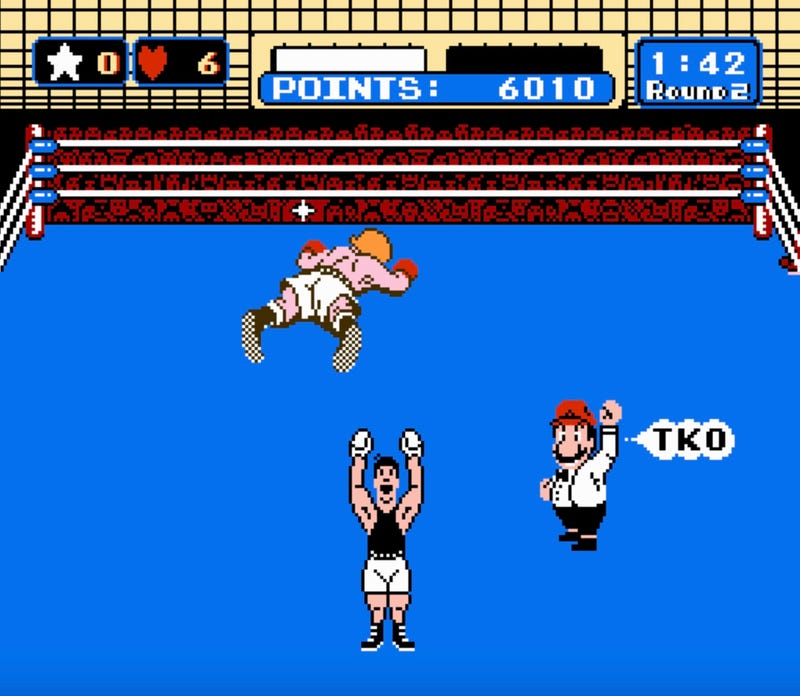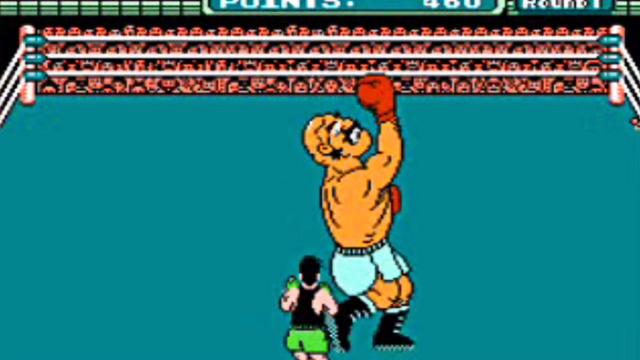Nintendo is the undisputed heavyweight champion of video game heroes. Their pantheon of premier protagonists—Mario, Link, Samus—contains some of the most recognizable characters in all of media. Though the gameplay gimmicks and boss fights might differ, their pure-hearted nature in the face of overwhelming odds unites them. Nintendo’s less popular characters are often relegated to Smash Bros. cameos and virtual console re-releases. (We miss you, Pit from Kid Icarus!) But there are plenty more Nintendo franchises deserving of a modern reinvention.
Nintendo’s scrappy boxing series, Punch-Out!! made its debut in arcades 40 years ago, and was instrumental in Nintendo’s rise to video-game superiority in the mid to late 1980s. Following the massive success of Donkey Kong, the first Punch-Out!! arcade cabinet was released in 1984. It needed to be fun and exciting, and most of all, it needed to use two television screens—because Nintendo had an abundance of them sitting in their warehouse. (Yes, really.) Shigeru Miyamoto designed your colorful assortment of opponents, who are alternately hilarious and incredibly dated. The Italian fighter, for instance, was named Pizza Pasta. In the arcade sequel, Super Punch-Out!!!, released several months later in the fall of 1984, a pugilist named Vodka Drunkenski fought for the USSR.
The arcade game was an immediate hit in Japan and in North America, allowing players to pull off jabs, uppercuts, and swings with just a couple of buttons and a joystick. Each one of the game’s six opponents had a distinct punching and blocking pattern you had to memorize meticulously to bring them down to the mat. The game’s balance of challenge and an attainable sense of mastery kept eager players plugging in quarters for just one more round.

For a while, the series was on top of the arcade and emerging home console scene, getting sequels, an arm-wrestling spinoff, a Game and Watch system, and even unofficial knockoffs. The peak came with 1987’s Mike Tyson’s Punch-Out!! on the NES, which featured a memorable new protagonist replacing the nameless, green-tinted boxer of the arcade games. The diminutive Little Mac, a 17-year-old newbie from the Bronx, was born, and with the help of his coach, Doc Louis, he was determined to prove that size doesn’t matter by going all the way to the top and eventually taking on the titular heavyweight champion. Opponents like the weak Glass Joe and the portly King Hippo returned from the arcade games, as did more family-friendly versions of other arcade foes. (The NES version’s Russian fighter, Soda Popinski, had traded his booze habit for a sugar problem.)
The gameplay had to evolve for the NES’s control scheme, but the core loop remained the same. To knock out their opponents, players had to watch for visual cues and understand patterns, waiting for the right time to strike. That solid core is so strong that four decades years later, Punch-Out!! still has a massive speedrunning community trying to run the gauntlet in the shortest possible time.
Over the next few decades, there were only a few new Punch-Out titles. 1998 had Super Punch-Out!! for the Super Nintendo and 2009 had the confusingly titled Punch-Out!! for the Wii. These days, if younger gamers know about Little Mac, it’s likely because they’ve skimmed past him while picking their favorite fighter in Super Smash Bros. Ultimate or noticed the game’s cameo in 2023’s Super Mario Bros. Movie.
But Mac and Punch-Out!! still deserve so much more, so here’s hoping the Switch 2 sees the glorious return of Nintendo’s plucky underdog series. In the meantime, if you ever get the chance to try the arcade cabinets or a vintage Nintendo console, give Punch-Out!! and its sequels a shot. It’s a lot easier to become a boxer when you don’t have to get punched in real life.

Leave a Reply